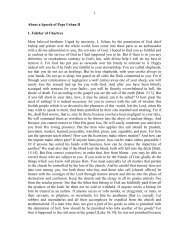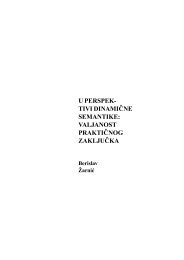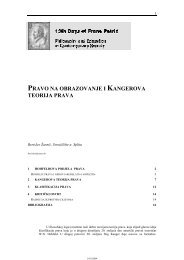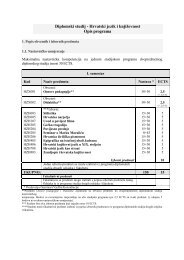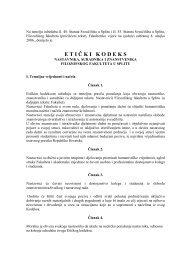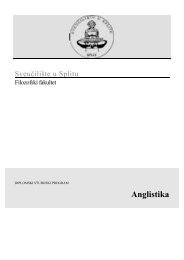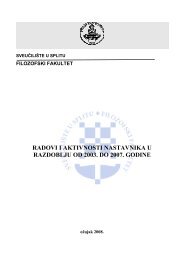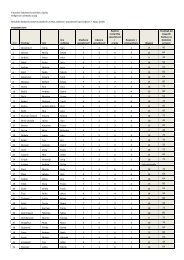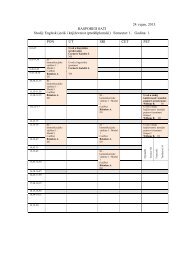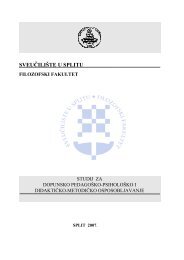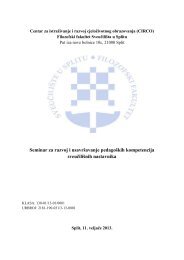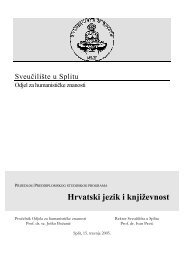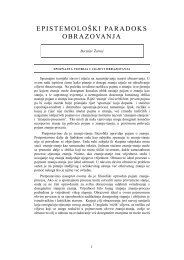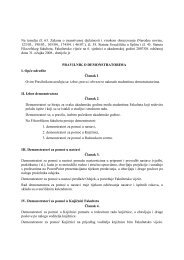English Studies
English Studies
English Studies
You also want an ePaper? Increase the reach of your titles
YUMPU automatically turns print PDFs into web optimized ePapers that Google loves.
G R A D U A T E D E G R E E P R O G R A M M E : E N G L I S H S T U D I E S<br />
3.2. Course information<br />
3.2.1. <strong>English</strong> <strong>Studies</strong>: Language and Communication<br />
(Courses in Translation studies: see 3.2.2.)<br />
Semester 1<br />
Course title Language and discourse<br />
Course code<br />
Type of course<br />
Level of course<br />
HZE601<br />
Lecture + Seminar / Advisory hours<br />
Elective course<br />
Intermediate level course<br />
Year of study First Semester One<br />
ECTS<br />
(Number of<br />
credits allocated)<br />
Name of<br />
lecturers<br />
Learning<br />
outcomes and<br />
competences<br />
Prerequisites<br />
Course contents<br />
6 ECTS credits<br />
Contact hours (30 lectures + 25 seminars + 5 advisory hours) = 1.5 credits.<br />
Student study time (135 hours) = 4.5 credits.<br />
Prof. Dr Mirjana Bonačić<br />
Ana Mršić, Assistant<br />
After successful completion of the course, the student is expected to<br />
understand important approaches to the study of discourse in linguistics,<br />
stylistics, cultural and critical theory. S/he should be able to demonstrate<br />
her/his theoretical knowledge and practical experience in the descriptive<br />
analysis of contextual, cognitive and linguistic aspects of discourse.<br />
Knowledge and competences acquired by completing the undergraduate<br />
study programme <strong>English</strong> language and literature or an equivalent study<br />
programme.<br />
This introduction to the study of discourse is designed to enable the student<br />
to explore the interface between language as a linguistic system and<br />
discourse as a concrete, rich, and multifaceted phenomenon of language<br />
use.<br />
The first part provides the student with a basic understanding of the models<br />
of discourse in cultural theory, mainstream linguistics and critical<br />
linguistics. The second part explores the overlap between semantics and<br />
pragmatics, refining and extending the student’s previous awareness of<br />
different types and dimensions of meaning. The third and main part of the<br />
course is devoted to major topics and key issues in pragmatics and discourse<br />
analysis: the theoretical concepts and practical analyses of semantic<br />
cohesion and pragmatic coherence, presupposition and entailment,<br />
contextual reference and inference, cooperation and implicature, speech acts<br />
13



